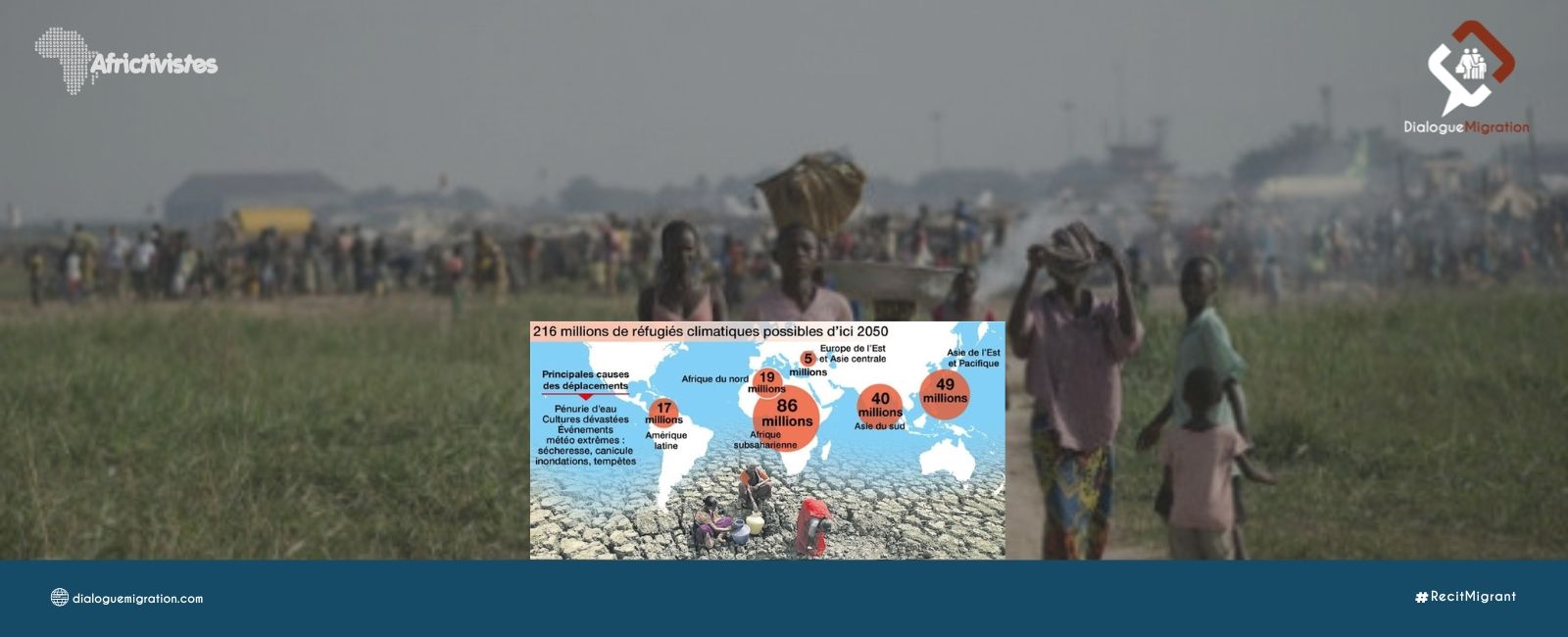

More and more people are displaced within and outside their own countries due to wars and violence. Inside the Democratic Republic of Congo, more than 5.6 million people are displaced. In a country with the largest displaced population on the African continent and one of the largest in the world, a young activist for change slams the tendency of policymakers to ignore that climate change and natural disasters also displace large numbers of the population in the region. Joseph Tsongo, peace and climate activist, said that Africa, currently facing the effects of climate change and a multitude of disasters, should invest in preparedness, particularly by strengthening adaptation capacities but also and above all by offering long-term solutions to displaced persons.
According to the IFRC Global Disasters Report 2020, it is estimated that by 2050, 200 million people per year could need humanitarian assistance due to the combination of climate-related disasters and the socio-economic impact of climate change. “Millions of people could become migrants, internally displaced people or be at risk of statelessness in the context of climate change and disasters,” says the same report, seen by Joseph Tsongo.
The report thus shows the need to focus as much on populations displaced by wars as those displaced by climate change and disasters in the Democratic Republic of Congo and throughout the African continent: “As much as we pay attention to those displaced by war, I suggest that we give the same attention to the climate-displaced in this context of almost generalized crisis,” says this young activist, estimating that floods, prolonged droughts, volcanic activities etc. lead to situations of internal displacement of people but also to cross-border displacement.
Being sure and certain that the displacement of people due to climate change and disasters is a problem that affects various States, especially on the African continent, Joseph Tsongo said he was shocked by the lightness with which political decision-makers look at this issue, constituting a time bomb according to him. “Unlike those displaced by war, the issue of population displacement due to disasters and climate change is rarely addressed… there are no figures or any clear policy on this subject, however, there are uncontrolled movements of populations at the international level and in the sub-region, particularly between the DRC, Burundi, Uganda and Rwanda,” explains Joseph Tsongo, who believes that this would generate economic losses and many other enormous social impacts.
He added that displacement in the context of climate change and disasters can also give rise to risks of statelessness, especially when displaced persons are unable to prove their nationality due to the loss of their documents or the impossibility of obtaining replacement documents, due to difficulties in accessing consular services.
The advocacy of this young activist is therefore focused on putting the issue of climate change and disaster-related developments at the center of policy agendas in Africa, to put in place strong commitments and strengthen laws and policies that are an essential aspect of the integrated approach required to address internal and external displacement related to disasters and climate.
At the same time, the International Monetary Fund has indicated that the adverse effects of climate change are concentrated in regions with relatively warm climates, where a disproportionate number of low-income countries are located.


